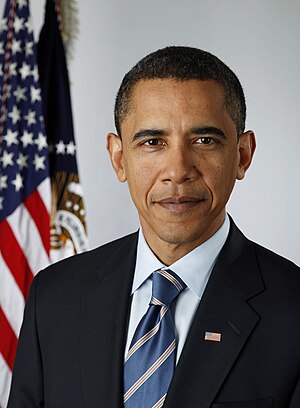 Image via Wikipedia
Image via WikipediaOne out of 10 delegates participating this week in US President Barack Obama’s Young African Leaders Forum was a journalist.
The forum, a US initiative meant to spark discussion on the future of Africa in a year when 17 countries on the continent are celebrating 50 years of nationhood, did not overlook freedom of the press, as I witnessed in its final event on Thursday at Washington’s museum of news, the Newseum.
The venue for Thursday’s event, a conference centre named after publisher John S. Knight, was perhaps fitting after the forum’s Tuesday town hall meeting at the White House featured significant references to press freedom.
Inspiring young people
Addressing 115 of the brightest and most enterprising leaders in activism, business, health, innovation and media in Africa on Tuesday, Obama singled out, among others, a Botswana journalist for inspiring young people with her popular radio show, and a journalist from Ivory Coast for championing the cause of Muslim women on her radio station.
In a Q&A session, the president mentioned press freedom while praising the ability of youth to challenge the status quo.
“In some of your countries, freedom of the press is still restricted,” Obama said. “There’s no reason why that has to be the case. There’s nothing inevitable about that. And young people are more prone to ask questions, why shouldn’t we have a free press?”
Bold and unprecedented, the administration’s approach to honour this ambitious Facebook generation, clearly raised eyebrows outside the US.
At the end of Thursday’s event, columnist and activist Tiémoko Antoine Assale, a delegate from Ivory Coast, told the audience how, before his departure, he received a phone call from a government official who was upset because he had not received an invitation from Washington.
As noted by the New York Times’ Adam Nossiter, Washington’s approach was a dramatic departure from France’s recent gathering of leaders of its former colonies during Bastille Day celebrations in July.
Marched with French troops
The keynote event of those celebrations was a military parade featuring African soldiers. They marched on the Champs-Élysée along with French troops, and the sound of their boots drowned out local and international civil society protests over human rights and democracy concerns.
French media quoted TV presenter Etienne Leenhard of state-funded France 2 as saying on the air that “Politically speaking, there are no dictatorships in Francophone Africa,” as he gestured over a map of the continent.
In Washington, however, the US State Department engaged the participants in thematic focus groups such as leadership, entrepreneurship, social responsibility, interfaith dialogue, and even “Advocacy, Transparency, and Human Rights.”
African governments dominate, monopolise, or politically censor national public media, and in many countries, government outlets are the only ones with the capacity to broadcast to the entire population.


No comments:
Post a Comment